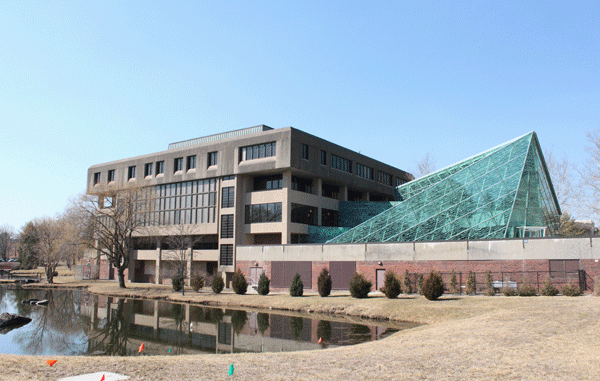
A SUNY Campus Performance Improvement Plan laid out several quantitative goals such as diversity, graduation rates, completion and enrollment for SUNY New Paltz to achieve within five years. President Donald Christian discussed the goals and challenges that may affect their achievement, such as lack of space and housing, with the college council on March 3.
An overall theme stated in the plan involves goals like recruiting more diverse students, faculty and staff of all backgrounds and ethnicites. Increasing the percentage of incoming classes from historically underrepresented groups and the number of veteran and military students are also aspiring goals for the future. By also achieving an upward trend on Student Opinion Survey scores concerning race, sexual orientation or gender identity, it will act as a “reflection on changing our community,” Christian said.
More quantitative goals include improving graduation rates by raising the four-year graduation rate from the current 55 percent to 62 percent. The college also strives to improve two-year and three-year transfer graduation rates from 39 percent to 45 percent and 70 percent to 76 percent.
“We have to remember a one percent change in our graduation or retention rate reflects 11 students staying or not staying, or not graduating,” Christian said.
In order to improve completion at SUNY New Paltz, the college strives to develop new, flexible majors, increase the number of bachelor’s degrees awarded beginning in 2019 and increase the number of dual-degree bachelors and master recipients beginning in 2020. New Paltz retention rates are above national and state average, but SUNY New Paltz wants to continue gains in first-year retention, stretching their goal of 93 percent by 2020.
SUNY Chancellor Nancy Zimpher wanted SUNY to increase from offering 93,000 degrees annually to 150,000 annually by 2020 initially, but extended it to 2025.
“I don’t know if any of us in the leadership team believe we can legitimately increase our degree production by 50 percent in a five-year period or even a 10-year period,” Christian said.
However, Christian believes looking at other types of credentials like certificate programs and more 4+1 programs, which allow business students to receive a bachelor’s and master’s degree in five years, could contribute to increasing the amount of degrees offered.
The improvement plan also lays out enrollment growth; with plans for EOP growth, growth in military and veteran students, and increased 4+1 programs in different fields and adding new certificate programs.
The budget did not increase this year for SUNY schools but the council is continuing to advocate for increased funding.
“Our success on some of these goals is resource dependent,” Christian said. “If we have a budget cut, we can’t sustain all of these things.”
From all the goals listed, the council believes enrollment growth and completions will increase the revenue for the expansion of opportunities for SUNY New Paltz. Enrollment growth in the chancellor’s vision welcomes people of the non-traditional age who do not have college degrees or have no college experience. By increasing the amount of high school graduates that are college ready, even though it’s declining, may also allow for enrollment growth.
Space constraints remain a difficult challenge for improving goals for SUNY New Paltz. In order to grow completions for increased revenue, the council said SUNY New Paltz needs more housing and another classroom facility. If the college had more housing and classrooms, the council believes the economy of this improvement plan can be sustained.
